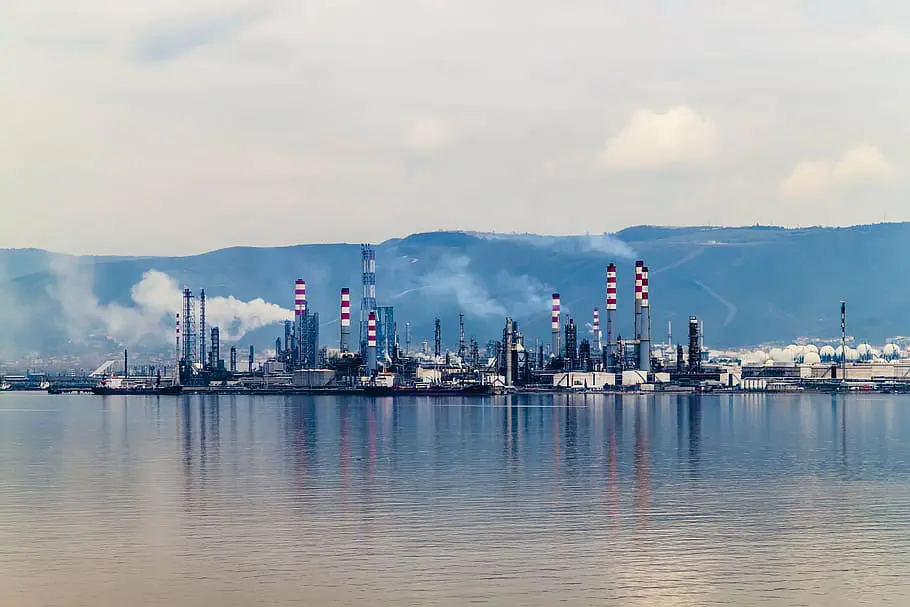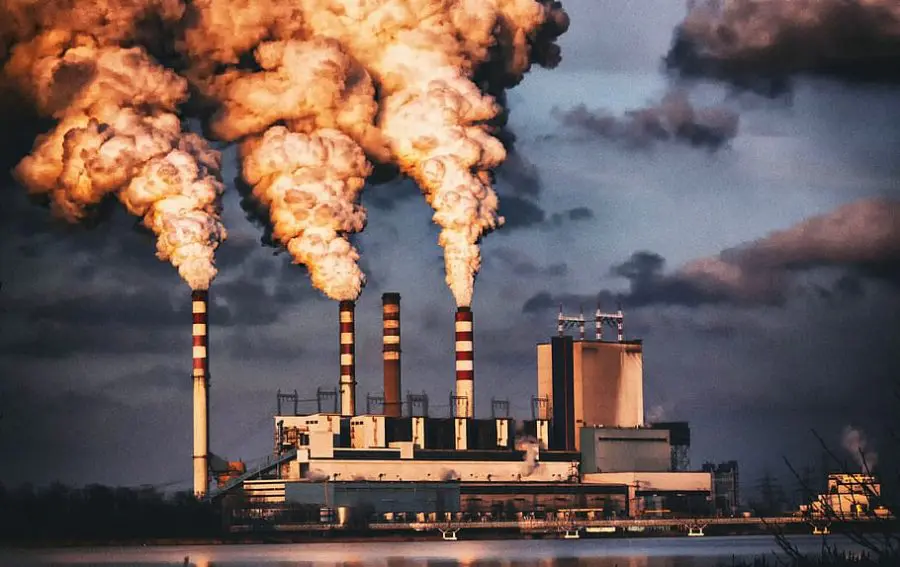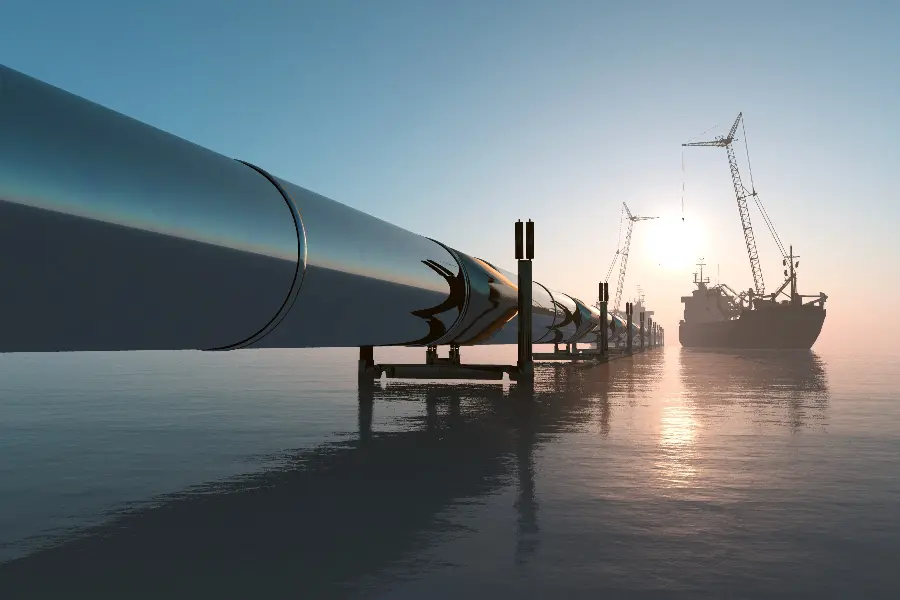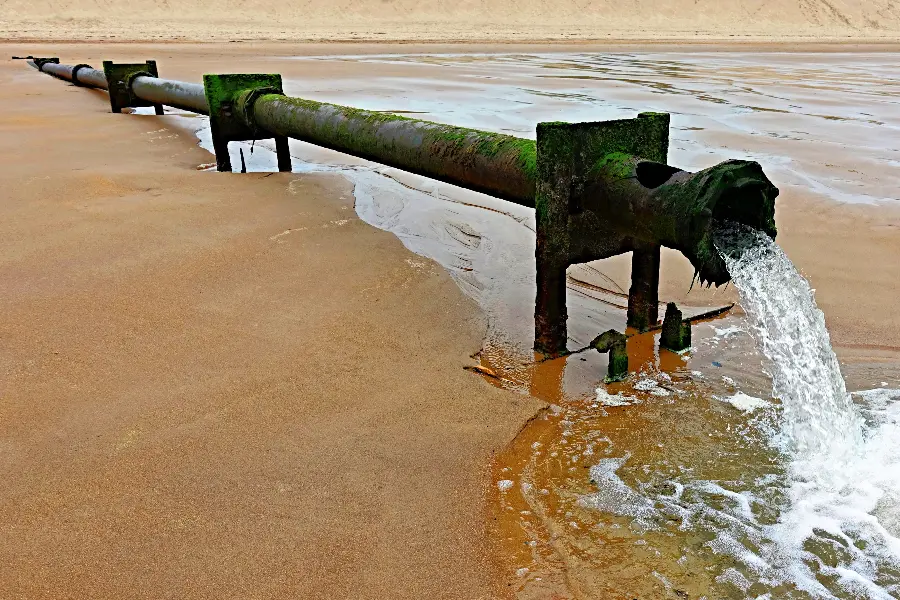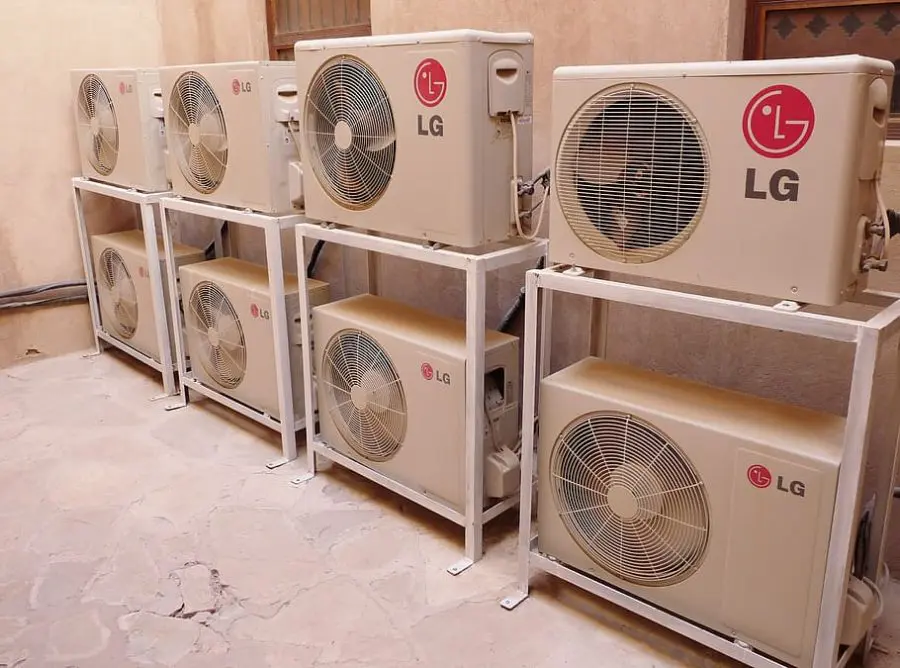
Do air conditioners filter pollution? In our latest blog post, we’ll unravel the facts and enhance your indoor air quality today so you can breathe easily!
Ever found yourself wondering, Do air conditioners filter pollution? It’s a question that’s crossed many of our minds, especially when we consider the quality of the air we breathe indoors.
In this blog post, we’re going to delve into this intriguing topic, shedding light on the capabilities of our trusty air conditioners and their role in maintaining our indoor air quality.
So, sit back, relax, and let’s embark on this enlightening journey together!
Do Air Conditioners Filter Pollution?
Do air conditioners filter pollution? It’s a question that’s more important than ever in our modern, urbanized world.
In this blog post, we’re going to explore this question in depth. We’ll dive into the workings of air conditioners, discuss the types of pollutants they can filter, and even touch on their limitations.
We’ll also explore how to enhance their pollution filtering capabilities and answer some frequently asked questions.
So, grab a cup of coffee and join us as we unravel the mystery of air conditioners and air pollution!
Brief Overview of Air Pollution and Its Effects
Air pollution, it’s a term we hear quite often, isn’t it? But what does it really mean?
Well, in simple terms, air pollution refers to the presence of harmful substances in the air we breathe.
These could be anything from dust and pollen to more harmful gases like carbon monoxide.
Now, the effects of air pollution on our health can be quite significant. It can lead to respiratory problems, trigger allergies, and in severe cases, even contribute to heart disease.
It’s a global issue that affects us all, whether we live in bustling cities or quiet countryside.
The Role of Air Conditioners in Our Daily Lives
Now, let’s talk about air conditioners. These handy devices do more than just keep us cool on a hot summer day.
They play a crucial role in our daily lives, especially when it comes to the air we breathe indoors.
Air conditioners circulate and filter the air within our homes, removing dust and other particulates.
This means they can help to improve the quality of our indoor air, making our homes a more comfortable, and healthier, place to be.
But the question remains, do air conditioners filter pollution? Well, let’s dive deeper into this topic and find out!
What is an Air Conditioner?
Let’s take a moment to appreciate our unsung hero, the air conditioner. What exactly is it, you ask?
Well, an air conditioner is a fantastic piece of technology that does more than just beat the heat.
It’s our personal oasis during those scorching summer days, working tirelessly to keep our homes cool and comfortable.
But there’s more to an air conditioner than meets the eye. So, let’s get to know our cool companion a little better, shall we?
Basic Definition and Function of an Air Conditioner
So, what exactly is an air conditioner? At its core, an air conditioner is a device that adjusts the temperature and humidity of the air in an enclosed space, making it more comfortable for occupants.
It does this by removing heat and moisture from the air, effectively conditioning it to our liking.
But how does it do this? Well, an air conditioner works by circulating the air in a room over a set of coils filled with refrigerant.
This refrigerant absorbs the heat from the air, cooling it down before it’s blown back into the room.
At the same time, the air conditioner also removes moisture from the air, helping to control humidity levels.
But an air conditioner does more than just cool the air. It also plays a crucial role in improving the quality of our indoor air.
As the air is circulated over the coils, it passes through a filter that removes dust, pollen, and other particulates.
This means that every time the air conditioner cycles, it’s not just cooling the air, but also cleaning it.
So, the next time you enjoy the cool comfort of your air-conditioned room, remember, there’s more going on behind the scenes than you might think!
How Does an Air Conditioner Work?
Ever wondered about the magic behind the cool breeze from your air conditioner on a hot summer day?
It’s not just a box that blows out cool air. There’s a fascinating process at work behind that comforting chill.
So, let’s pull back the curtain and take a peek at how an air conditioner works. It’s a bit like a magic trick but with science!
The Cooling Process
The cooling process of an air conditioner might seem like magic, but it’s actually a fascinating dance of science and engineering.
It all starts when the warm air in your room is drawn into the air conditioner.
This air then passes over a set of coils filled with a special liquid called a refrigerant.
This refrigerant has a superpower, it can absorb heat! As it absorbs the heat from the air, it turns from a liquid into a gas.
This gas is then compressed and cooled down, releasing the absorbed heat to the outside.
The refrigerant then turns back into a liquid and the process starts all over again. And voila! That’s how your air conditioner cools the air.
The Role of Filters in Air Conditioners
Now, let’s talk about another important part of an air conditioner – the filters.
While the refrigerant is busy cooling the air, the filters are hard at work cleaning it.
As the air is drawn into the air conditioner, it passes through these filters, which trap dust, pollen, and other particulates.
This means that not only is your air conditioner cooling the air, but it’s also helping to improve the quality of your indoor air.
However, these filters can’t do their job properly if they’re dirty or clogged.
That’s why it’s important to clean or replace your air conditioner filters regularly.
So, the next time you’re enjoying the cool, clean air from your air conditioner, give a little nod of thanks to those hard-working filters!
Do Air Conditioners Filter Pollution?
Now that we’ve got a handle on what an air conditioner is and how it works, let’s tackle the question that’s been on our minds: Do air conditioners filter pollution?
It’s a question that’s more relevant than ever in today’s world, where air quality is a growing concern.
So, let’s dive in and explore the capabilities of our trusty air conditioners when it comes to filtering pollution.
You might be surprised by what we discover!
General Capabilities of Air Conditioners in Filtering Pollution
Air conditioners are quite the multitaskers. Not only do they cool our homes, but they also play a part in filtering pollution.
As we’ve discussed, as the air is circulated through an air conditioner, it passes through filters that trap dust, pollen, and other particulates.
But what about other types of pollution? Well, while air conditioners aren’t designed to filter out all types of pollutants, they can help reduce the levels of certain airborne pollutants in our homes.
This includes larger particulates like dust and pollen, as well as some types of bacteria.
However, it’s important to note that the effectiveness of an air conditioner in filtering pollution largely depends on the type of filter it uses and how well that filter is maintained.
Types of Pollutants That Can Be Filtered
So, what types of pollutants can air conditioners filter out?
Well, most air conditioners are equipped with filters that can trap larger particulates like dust, pollen, and pet dander.
Some air conditioners, especially those with high-efficiency filters, can also trap smaller particulates and some types of bacteria.
However, air conditioners are not designed to filter out gases or odors.
This includes pollutants like tobacco smoke, volatile organic compounds (VOCs), and certain types of indoor air pollution.
For these types of pollutants, additional air-cleaning devices may be needed.
So, while air conditioners can help improve the quality of our indoor air, they’re just one piece of the puzzle when it comes to managing indoor air pollution.
Types of Air Conditioner Filters
Air conditioner filters are the unsung heroes of our cooling systems. They work tirelessly to clean our indoor air, but not all filters are created equal.
In fact, there are several types of air conditioner filters, each with its own strengths and weaknesses.
So, let’s take a closer look at these different types of filters and see how they contribute to the overall performance of our air conditioners.
It’s time to give these hard-working filters the recognition they deserve!
Basic Filters
Let’s start with the most common type of air conditioner filters, the basic filters.
These are typically made of spun fiberglass or pleated paper or cloth. They’re designed to trap larger particles like dust, lint, and hair.
While these filters are effective at improving the overall air quality in your home, they’re not designed to filter out smaller particles like bacteria or certain types of allergens.
It’s also important to note that these filters need to be replaced regularly to maintain their effectiveness.
HEPA Filters
Next up, we have HEPA filters. HEPA stands for High-Efficiency Particulate Air.
These filters are the heavy hitters in the world of air filtration. They’re designed to trap at least 99.97% of particles that are 0.3 microns in diameter.
This includes many types of allergens, bacteria, and even some viruses.
If you’re particularly concerned about indoor air quality, a HEPA filter might be a good choice for your air conditioner.
However, keep in mind that these filters can be more expensive and may need to be replaced more frequently than basic filters.
Activated Carbon Filters
Finally, we have activated carbon filters. These filters are a bit different from the others.
Instead of trapping particles, activated carbon filters work by adsorbing gases and odors.
This includes things like tobacco smoke, cooking odors, and volatile organic compounds (VOCs).
If you’re concerned about odors or gases in your home, an activated carbon filter could be a good addition to your air conditioner.
However, like HEPA filters, activated carbon filters can be more expensive and may need to be replaced more frequently.
So, there you have it, a quick rundown of the different types of air conditioner filters.
Each has its own strengths and weaknesses, so the best one for you will depend on your specific needs and concerns.
Efficiency of Air Conditioner Filters
We’ve talked about the different types of air conditioner filters, but how efficient are they really?
It’s one thing to have a filter, but it’s another thing entirely for that filter to do its job well.
In this section, we’re going to delve into the efficiency of air conditioner filters.
We’ll explore how well they can filter pollution and the factors that can affect their performance.
So, let’s get down to the nitty-gritty and see how these filters stack up!
How Efficient are Air Conditioner Filters in Filtering Pollution?
When it comes to filtering pollution, the efficiency of air conditioner filters can vary quite a bit.
Basic filters, for example, are great at trapping larger particles like dust and lint, but they’re not so good at capturing smaller particles like bacteria or certain allergens.
On the other hand, HEPA filters are designed to trap at least 99.97% of particles that are 0.3 microns in diameter, making them much more efficient at filtering out smaller particles.
Activated carbon filters, meanwhile, are unique in that they can adsorb gases and odors, something that other filters can’t do.
So, while no filter can remove all pollutants, some are definitely more efficient than others.
Factors Affecting the Efficiency of Air Conditioner Filters
Several factors can affect the efficiency of air conditioner filters. One of the biggest is the type of filter.
As we’ve discussed, different filters have different capabilities when it comes to filtering pollution.
Another important factor is the size of the particles. In general, filters are more efficient at capturing larger particles and less efficient at capturing smaller ones.
The condition of the filter can also play a role. Over time, filters can become clogged with particles, reducing their efficiency.
That’s why it’s so important to replace or clean your filters regularly.
Finally, the overall air quality in your home can affect the efficiency of your filters.
If your home has a lot of pollutants, your filters may not be able to keep up, resulting in lower air quality.
Limitations of Air Conditioners in Filtering Pollution
While air conditioners can do a lot to improve our indoor air quality, they’re not miracle workers.
There are certain limitations when it comes to their ability to filter pollution.
In this section, we’re going to explore these limitations and discuss why it’s important to understand them.
We’ll also talk about the steps we can take to ensure our air conditioners are working as effectively as possible.
So, let’s dive in and uncover the whole truth about air conditioners and pollution filtering!
Types of Pollutants That Cannot Be Filtered by Air Conditioners
While air conditioners can filter out a range of pollutants, there are certain types that they struggle with.
For instance, gases and odors are typically not captured by standard air conditioner filters.
This includes pollutants like tobacco smoke and volatile organic compounds (VOCs), which can contribute to indoor air pollution.
Additionally, very small particles, such as those found in smoke or certain types of bacteria and viruses, can also evade standard filters.
It’s important to remember that while air conditioners can help improve indoor air quality, they’re not a complete solution for air pollution.
The Need for Regular Maintenance and Filter Replacement
One of the key factors in the effectiveness of an air conditioner in filtering pollution is regular maintenance and filter replacement.
Over time, filters can become clogged with particles, which not only reduces their efficiency but can also put a strain on your air conditioner.
Regularly replacing or cleaning your filters ensures they’re able to do their job effectively.
Additionally, regular maintenance of your air conditioner can help it run more efficiently and can prolong its lifespan.
So, while it might seem like a chore, keeping up with your air conditioner maintenance is an important part of maintaining good indoor air quality.
Enhancing the Pollution Filtering Capabilities of Air Conditioners
So, we’ve learned that while air conditioners can help filter some types of pollution, they do have their limitations.
But don’t worry, all is not lost! There are ways to enhance the pollution filtering capabilities of our trusty air conditioners.
In this section, we’re going to explore some of these methods.
From using air purifiers to regular cleaning and maintenance, there are several strategies we can employ to help our air conditioners do an even better job.
So, let’s roll up our sleeves and find out how we can make our air conditioners even more effective!
Use of Air Purifiers
One of the most effective ways to enhance the pollution filtering capabilities of your air conditioner is to use an air purifier.
Air purifiers are devices that are specifically designed to clean the air in your home.
They work by drawing in air, passing it through a series of filters to remove pollutants, and then releasing the clean air back into your home.
Some air purifiers even have special filters that can remove gases and odors, something that most air conditioners can’t do.
By using an air purifier in conjunction with your air conditioner, you can significantly improve the quality of your indoor air.
Regular Cleaning and Replacement of Filters
We’ve mentioned this before, but it’s worth repeating: regular cleaning and replacement of your air conditioner filters are crucial.
Over time, filters can become clogged with particles, reducing their efficiency and potentially damaging your air conditioner.
By regularly cleaning or replacing your filters, you can ensure they’re working as effectively as possible.
This not only improves the air quality in your home but can also help your air conditioner run more efficiently.
Use of Higher Quality Filters
Finally, consider using higher-quality filters in your air conditioner. While basic filters can do a good job of trapping larger particles, they’re not as effective at capturing smaller particles.
Higher-quality filters, like HEPA filters, can trap a greater range of particles, including many types of allergens and bacteria.
Some air conditioners can even be fitted with activated carbon filters, which can adsorb gases and odors.
While these filters can be more expensive, they can significantly improve the pollution filtering capabilities of your air conditioner.
So, if air quality is a major concern for you, investing in higher-quality filters could be a good move.
FAQs
We’ve covered a lot of ground, but you might still have some questions. And you’re not alone!
Many people have queries when it comes to air conditioners and their ability to filter pollution.
So, we’ve gathered some of the most frequently asked questions on this topic.
Let’s dive into these FAQs and clear up any lingering doubts you might have!
Q: Do air conditioners filter air pollution?
A: Yes, air conditioners can filter some types of air pollution. They are equipped with filters that can trap larger particles like dust, lint, and hair.
Some air conditioners with high-efficiency filters can also trap smaller particles and some types of bacteria. However, they are not designed to filter out gases or odors.
Q: Does air conditioning help clean air?
A: Yes, air conditioning can help clean the air.
As the air is circulated through an air conditioner, it passes through filters that trap dust, pollen, and other particulates.
This can help to improve the quality of the indoor air.
Q: Does AC remove carbon dioxide?
A: No, air conditioners are not designed to remove carbon dioxide or other gases.
They primarily work by cooling the air and removing moisture, not by filtering out gases.
Q: Can window AC purify the air?
A: Window AC units can help to improve air quality by filtering out larger particles like dust and pollen.
However, they are not as effective as other types of air conditioners or air purifiers at removing smaller particles or gases.
Q: Can air conditioners improve air quality?
A: Yes, an air conditioner can improve air quality by filtering out larger particles from the air.
However, to effectively improve air quality, it’s important to regularly clean or replace the filters and consider using an air purifier for additional air cleaning.
Q: How can I purify the air naturally?
A: There are several ways to purify the air naturally.
These include increasing ventilation in your home, using houseplants that can help clean the air, and reducing the use of products that release volatile organic compounds (VOCs) into the air.
Additionally, regular cleaning can help reduce dust and other particles in the air.
Conclusion
We’ve journeyed through the world of air conditioners and their role in filtering pollution, and it’s been quite an enlightening ride!
But as we reach the end of our exploration, it’s time to tie up all the loose ends and bring everything together.
In this conclusion, we’ll recap the main points and share some final thoughts on the role of air conditioners in filtering pollution.
So, let’s wrap things up and put a bow on our discussion!
Recap of the Main Points
Let’s take a moment to revisit the key points we’ve discussed.
We started by understanding what an air conditioner is and how it works, focusing on the cooling process and the role of filters.
We then delved into the question, Do air conditioners filter pollution? and found that while they do filter some types of pollution, there are limitations.
We explored the different types of air conditioner filters, their efficiency, and the factors that affect their performance.
We also discussed ways to enhance the pollution filtering capabilities of air conditioners, including the use of air purifiers, regular cleaning and replacement of filters, and the use of higher quality filters.
Finally, we answered some frequently asked questions on the topic.
Final Thoughts on the Role of Air Conditioners in Filtering Pollution
As we wrap up, it’s clear that air conditioners play a significant role in filtering pollution and improving our indoor air quality.
However, they’re not a one-stop solution for all types of pollutants.
It’s important to understand their capabilities and limitations and to take additional measures where necessary, such as using air purifiers or higher-quality filters.
Regular maintenance and filter replacement are also crucial to ensure the effectiveness of your air conditioner in filtering pollution.
In the end, while our air conditioners can do a lot to make our homes more comfortable and healthier, it’s up to us to make the most of them!


